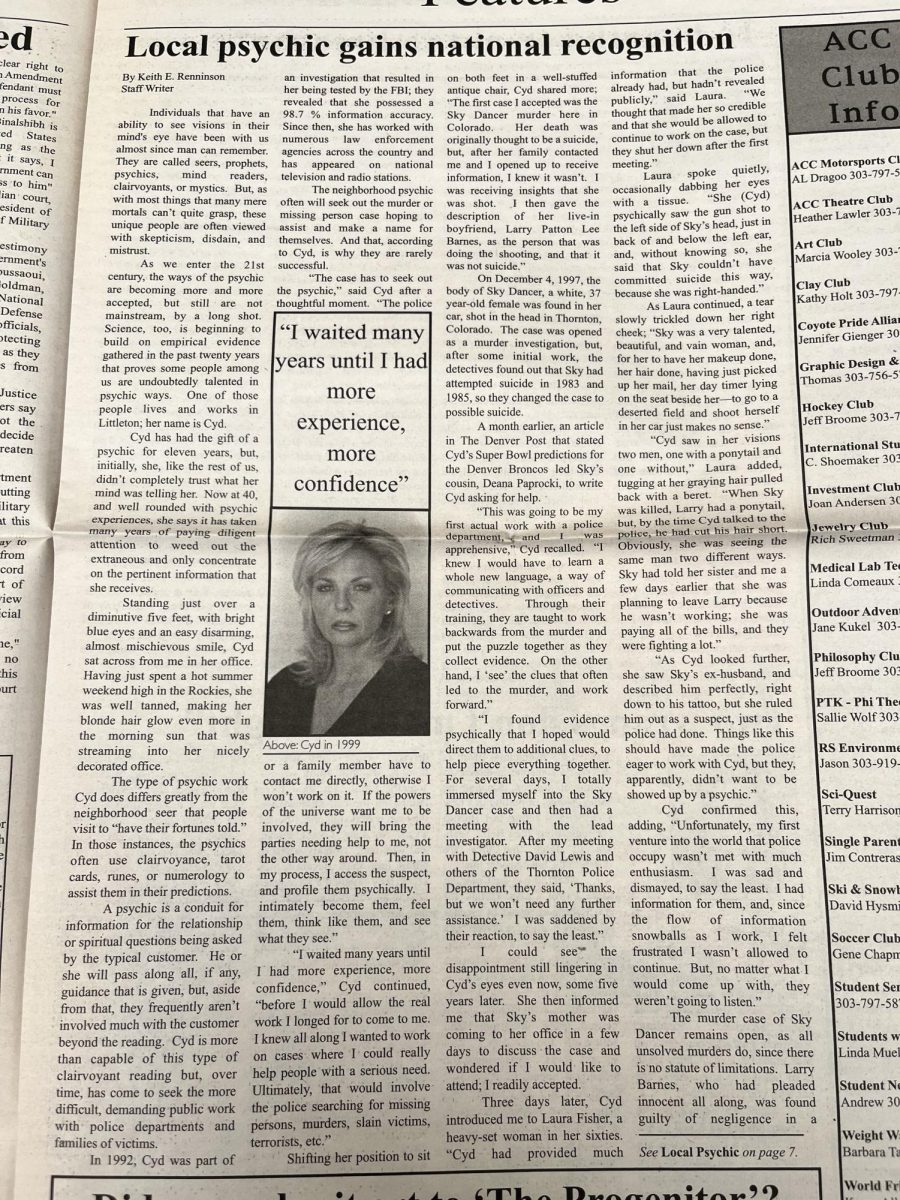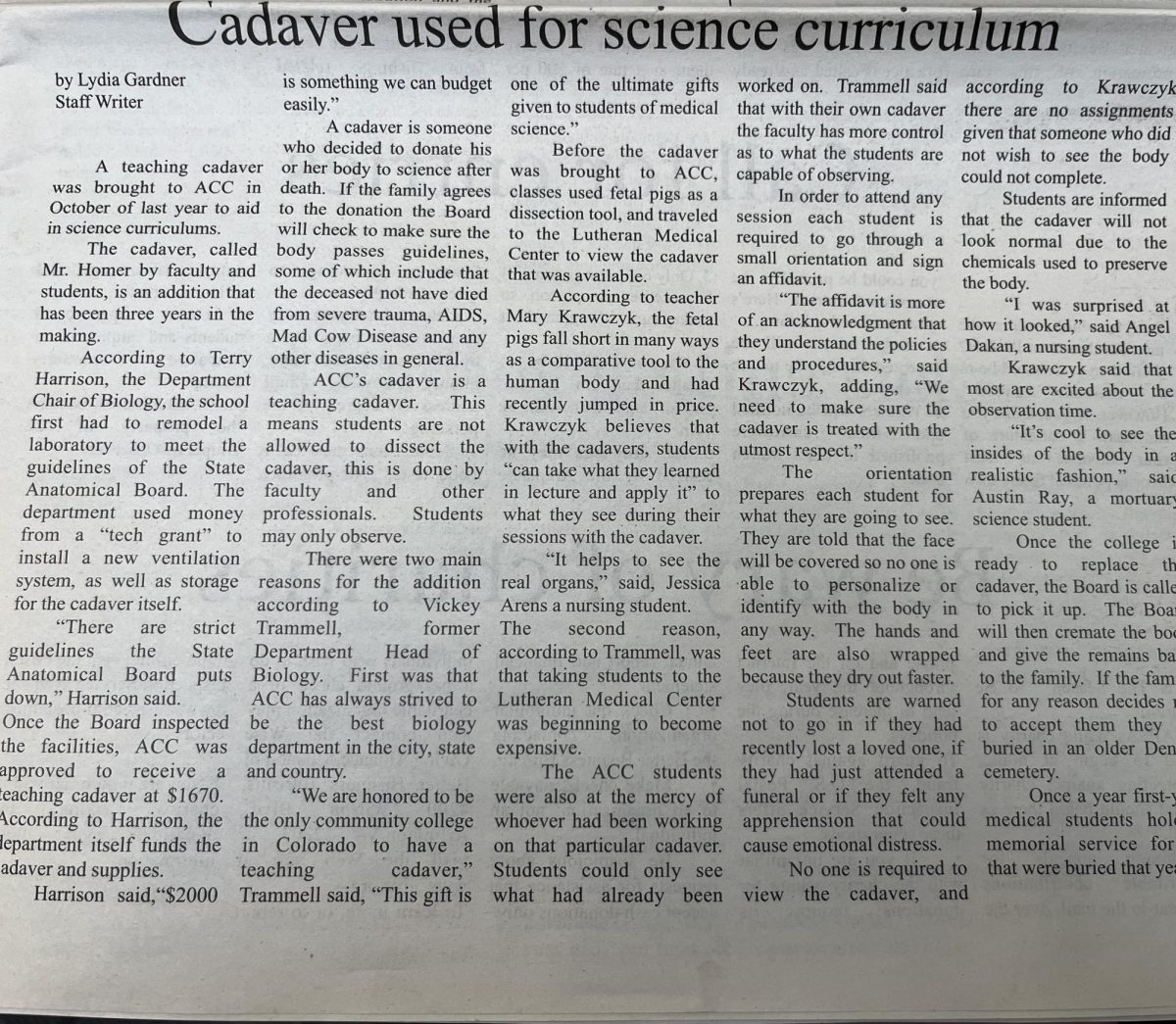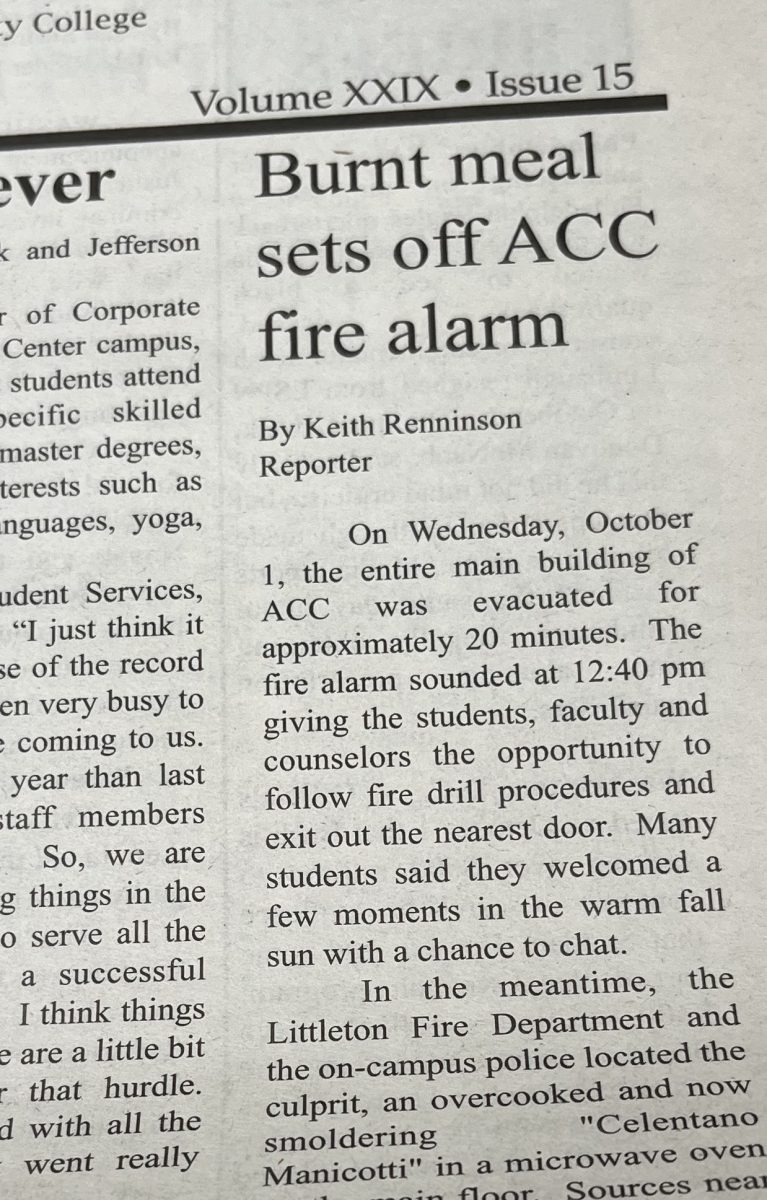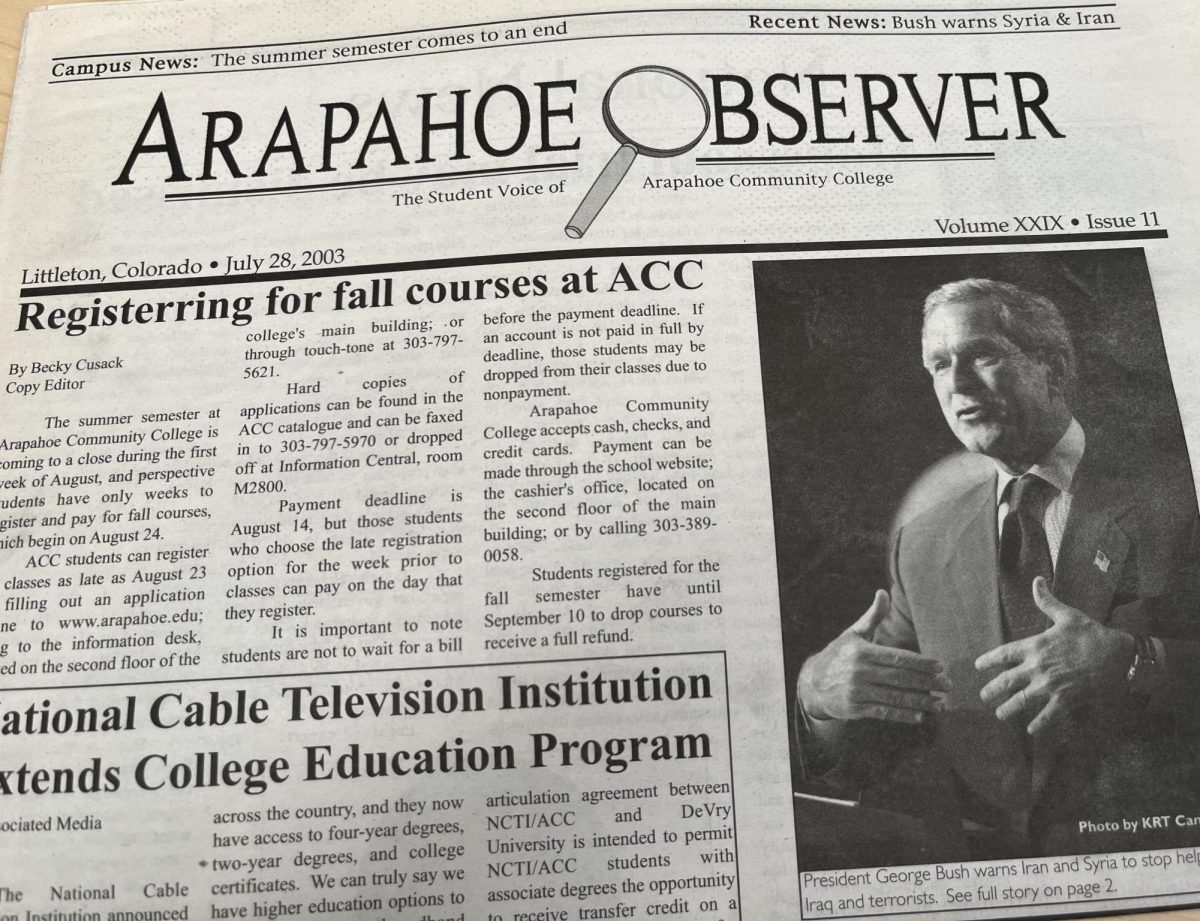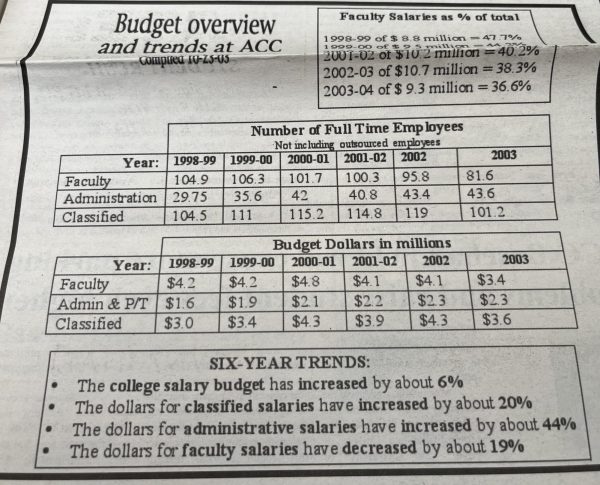
Editor’s Note: This story originally ran Dec. 1, 2003 in the Arapahoe Observer, Arapahoe Community College’s student newspaper at the time.
Arapahoe Community College has 354 adjunct teachers that are fulfilling part-time positions without receiving any health benefits under semester-to-semester contracts with no obligation for re-hire status.
ACC adjunct instructor pay is $459.00 per credit hour, the lowest in comparison to other Colorado Community Colleges. The cost of living in ACC’s service area is one of the highest in the nation, Colorado Consumer Price Index has increased by 16% in the last 6 years, while adjunct pay has only increased by 13% indicating adjunct instructor pay has actually declined in real dollars.
Adjunct teachers account for 79% of the teacher population at ACC compared to 95 full time professors or 21%.
The American Association of University Professors (AAUP) committee at ACC recommends an increase to at least $528.00 per credit hour to remain competitive within the Denver Metropolitan Area market.
According to an anonymous source, “most adjunct instructors are working full-time in addition to teaching class.” Adjunct instructors are not paid to hold office hours, grade papers or prepare for class. Adjunct teachers do not receive individual pay increases. According to Dominic Latorraca, the last periodic pay increase to the pay rate table was last year.
“Typically, every full-time position opens because we all will require some teaching experience. A great majority of adjunct positions include some teaching experience. A great majority of adjunct positions include at least one adjunct teacher applying for the position,” commented Latorraca.
In emergency situations, adjunct teachers are offered positions with a limited one-year contract. No statistics are available of adjunct teachers waiting for full time teaching positions to open up. Adjunct teachers undergo yearly evaluations conducted by department chairs and reviewed by their deans.
The AAUP view toward part-time faculty is: “when instructors have neither the time nor the freedom to develop their own curricula, the quality of education suffers: uniform standardized teaching severely limits the education students receive. Perhaps most important, lack of job security curtails academic freedom, because the controversy and disagreement inherent in the free exchange of ideas carries with it the risk of dismissal or retribution.
Colorado’s two-year colleges are serving 115,000 students. An article in the November 24 Denver Post, “Ax hangs over 2-year colleges”, says “A bill sponsored by a legislative committee on government spending calls for a four-month efficiency study of the Denver-based community college central administration. Recommendations could include closing the central office or combining administrative jobs of area colleges.”
Arapahoe Community College is under the community minority percentage of 10.1% with 9.3% faculty on campus. ACC is experiencing a student influx, as the 2003 fall freshman total head count was 7,607. Total student enrollment at ACC has reached 12,574. With part-time faculty, students have less access to teacher’s time, affecting the students with no teacher office hours. An anonymous professor commented, “administration should be concerned with hiring quality teachers with a competitive salary to attract and retain teachers who meet the needs of students. Due to concern about economic development within the region, a strong educational base needs to be retained. Continuing growth in an attempt to solve the problem, without sacrificing the educational base, is the first step to providing quality instruction while working with legislature and administration. This would enable us to continue to do what we love and make sure the students don’t suffer.”
The trend occurring with full-time faculty has been a decline to a low of 81.6 full-time faculty while just 4-5 years ago ACC faculty were as many as 104.9, while at the same time administration has increased from 29.75 to 43.6 total administrators.
A similar pattern has occurred within the administrative budget featuring an increase from $1.6 million to $2.3 million. Meanwhile the faculty budget has decreased from $4.2 million to $3.4 million.
One professor commented, “I would like for the college to re-focus energies and resources on instruction”. Another expressed “teaching faculty aren’t valued by administration.”
ACC student Dave Hall says, “professor’s salaries are ridiculous; with many numerous additional hours spent outside of class, some may be barely scraping by and just up slightly above the poverty line. Administration, on the other hand is at salary levels significantly higher than professors. This college has a specific problem to address when professors are receiving the lowest paid credit hour per course compared to four neighboring colleges. I feel privatization would work, as the college would not be so dependent on state and federal funding. This could result in enterprises such as a university press that could offer services to local business and would generate a great deal of income for the college.”
When confronted with the same information, ACC President, Dr. Bert Glandon declined comment.




